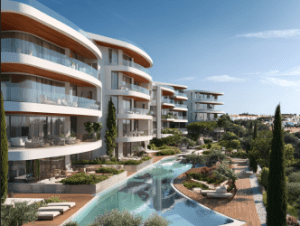The Portugal Retirement Visa: Is it Right for You?
-
Written by Brandon Roe
- Reviewed by Mark Nestmann
-
Updated: April 9, 2025






Contents
- Why Choose Portugal for Retirement?
- Understanding Portugal’s Retirement Visa
- What You Have to Do Before You Apply…
- You Also Need to Spend a Lot of Time in Portugal…
- Taxes in Portugal
- Income Requirements for Portugal’s Retirement Visa
- But Don’t Trust the Minimums
- How to Apply for the Portugal Retirement Visa
- Step 1: Gather Required Documents.
- Step 2: Apply in Your Home Country
- Step 3: Apply for a Residency Permit
- Step 4: Maintain Your Visa
- Step 5: Apply for Permanent Residency or Citizenship
- The Portugal Retirement Visa vs the Portugal Golden Visa
- The Portugal Retirement Visa in Summary
You likely know how important it is to get a second residency. It lets you live in another country if you find staying here in the United States just isn’t working for you anymore.
The big trouble is picking the right residency for you. There are a lot of them and they all cater to different sorts of people.
Free Wealth Protection Insights
Enter your email below to receive our weekly briefings on better ways to preserve your wealth, legally reduce your tax bill, and better protect what you’ve worked hard to build.
The Nestmann Group does not sell, rent or otherwise share your private details with third parties. Learn more about our privacy policy here.
PLEASE NOTE: This e-series will be delivered to you via email. You should receive your first message minutes after joining us. By signing up for this course, you’ll also start to receive our popular weekly publication, Nestmann’s Notes. If you don’t want to receive that, simply email or click the unsubscribe link found in every message.
In today’s piece, we want to talk about one in particular – the Portugal Retirement Visa.
Portugal is a fantastic Plan B option. People from Northern European countries have long spent their golden years there. But it’s also become a popular retirement haven for North Americans.
The Portuguese D7 visa – aka the “Passive Income Visa” or “Portugal Retirement Visa” – is one big reason. Since 2007, this program has let non-citizens of the European Union live in Portugal almost immediately.
After five years of living there, you can apply for Portuguese citizenship and a Portuguese passport.
So is it right for you? This article will help you figure that out.
Why Choose Portugal for Retirement?
About the same size as Maine, Portugal packs a lot into its fairly small area. Surrounded by the Atlantic Ocean on two sides, it offers lifestyle options to fit almost every retiree:
- Urban chic. Lisbon is the capital of Portugal and is one of Europe’s most charming cities. It offers colorful architecture, old-fashioned trams, delicious food, and a rich history.
- Beachfront living. The Algarve region of Southern Portugal is well-known for its blend of beaches, golf courses, parks, villages and Roman ruins.
- Wine country. Most people don’t know that Portugal is a leading wine producer. And the province of Alentejo – about an hour’s drive from Lisbon — is the center of it.
Portugal also offers about 300 days of sunshine every year so you can enjoy outdoor activities for most of the year. Winters are generally mild, so you don’t have to worry about heavy snow or freezing temperatures.
Living costs – especially food, housing, and healthcare are much lower than in most parts of the United States. Your retirement savings go further.
If you retire in Portugal, you can use their free healthcare once you become a legal resident. It’s called the National Health Service and most medical services are free. You can sign up as soon as you get legal residency.
There are also private healthcare choices in Portugal. These cover things like dental care and eye exams that are not offered by the free public healthcare. Private doctors and clinics also help you get appointments faster compared to the public system.
Understanding Portugal’s Retirement Visa
Citizens of any other EU countries don’t need a visa to live in Portugal. You simply show up and register your desire to live there.
The D7 visa is offered just to non-EU citizens. And we should mention that it’s not technically a retirement visa. But within the industry, it’s set up just like other retirement visa programs, so many people call it a retirement visa.
To get one, you just need to prove enough passive income to support yourself in Portugal without working (e.g., pensions, interest, royalties, Social Security). You need a clean criminal record. And you’ll need private medical insurance in Portugal until you move there and sign up for the national healthcare system.
Best Places to Live in Portugal for Americans
What You Have to Do Before You Apply…
You must have an address in Portugal before you apply. That often means renting an apartment and hoping your application is approved.
Before you can apply, you need to open a Portuguese bank account and get a Portuguese tax ID number.
It’s possible to do these tasks yourself but it’s difficult. Many of our clients hire immigration agents in Portugal to help them.
You Also Need to Spend a Lot of Time in Portugal…
For the first two years after you get your retirement visa, you can’t leave the country for more than six months at a time, or more than eight months in all.
Now it’s hard for the Portuguese authorities to enforce this requirement if you’re travelling within the EU since most border crossings require no immigration formalities. But if you travel back to the United States, be careful how long you spend outside Portugal.
When you renew the visa after two years, you’ll get another three-year term. You must stay in Portugal for at least 28 months of those three years.



Are these the best Income-Producing Properties in Portugal?
That’s for you to decide. But enter your email address below to receive a summary of pre-vetted, turn-key short-term rental properties available in Portugal right now.
The Nestmann Group does not sell, rent or otherwise share your private details with third parties. Learn more about our privacy policy here.
By signing up for this briefing, you’ll also start to receive our popular weekly publication, Nestmann’s Notes. If you don’t want to receive that, simply email or click the unsubscribe link found in every message.
Taxes in Portugal
One big drawback to retiring in Portugal (and most of Europe in general) is high tax. You’ll pay up to 48% tax on your worldwide income.
But there’s one potential way out — foreign pension income is exempt from tax if it is taxed in another country with a tax treaty.
For US citizens, that means Social Security and pension income isn’t taxable in Portugal.
Income Requirements for Portugal’s Retirement Visa
The official income requirements for the D7 visa are relatively low, as they are based on local minimum wage and change each year.
For 2025,
If you’re single: A passive income of at least €870 per month. You also must show savings of €10,440 or more.
Married or partnered couples (same-sex or opposite sex): Total income of €1,305 per month and €15,660 in savings.
Couple and their minor child (under 18): Total income of €1,566 per month and €18,792 in savings.
But Don’t Trust the Minimums
They are misleading. In practice, Portuguese immigration staff have a lot of discretion. They rarely approve retirement visa applications that barely meet these minimum thresholds for the simple reason that people can’t afford to live well with the minimums.
Although Portugal is pretty inexpensive, the cost of just renting an apartment in a popular location like Lisbon alone will be more than the visa minimums.
So we suggest the following: don’t bother unless you can show a minimum income of:
At least double the official threshold if you don’t plan to live in a major city or on the beach.
At least triple in the more expensive parts of the country – Lisbon or prime beachfront.
That will give you the best chance of being approved.
How to Apply for the Portugal Retirement Visa
Step 1: Gather Required Documents
You’ll need:
A valid passport.
Two recent European size passport photos (45 mm x 35mm).
Birth certificate and marriage certificate (if you’re married).
Proof of passive income from Social Security, pension, or other source.
At least three months of bank statements that show the passive income entering your account (the account can be in your local bank).
Proof of a Portuguese bank account showing the minimum bank balance.
Proof you’ve found a place to live in Portugal (e.g., a 12-month lease agreement).
Proof of private health insurance in Portugal.
Your previous year’s tax return.
Criminal background check.
Step 2: Apply in Your Home Country
You’ll need to apply for your D7 Retirement Visa in person at a Portuguese consulate in the country where you live. In the United States, there are Portuguese consulates in:
Boston,
New York City,
Newark (New Jersey),
New Bedford (Connecticut), and
San Francisco.
You likely need to book an interview online.
Someone from the consulate will then confirm your interview by email and tell you which documents to bring.
Step 3: Apply for a Residency Permit
If you’re successful, the consulate will send you a temporary visa that lets you stay in Portugal for up to four months.
It will also book an appointment with an office of the Agency for Integration, Migration, and Asylum (AIMA).
The AIMA will collect your documents and record biometric data for your visa. Within about three weeks of your appointment, you will receive your visa at your Portuguese address.
Step 4: Maintain Your Visa
To do so, make sure you’re in the country long enough each year.
Step 5: Apply for Permanent Residency or Citizenship
After living in Portugal for five years, you can apply for permanent residency or citizenship. Citizenship is better because you can get a Portuguese passport. That will let you live and work in Portugal or any other EU country forever. Plus, a Portuguese passport is one of the best travel documents in the world — giving you access to nearly 190 countries without a visa, or with minimal visa formalities, including the United States and Canada.
Golden Visas in Europe: Top 3 EU Residence Programs
What is a Golden Visa in Europe and how do they work? You’ll discover 3 programs, how they work, and how to qualify for one. For more information, visit Golden Visas in Europe.
The Portugal Retirement Visa vs the Portugal Golden Visa
Clients are sometimes confused about the difference between these two visa programs. It’s not hard to see why – many online “experts” don’t seem to realize they are two different programs.
But while they are similar in some ways, they are quite different indeed.
Portugal’s Golden Visa is officially called the “residence permit for investment activity”.
Unlike the D7 Retirement Visa, you don’t need to actually live in Portugal to keep it valid. You just need to spend at least 14 days in Portugal during the first two years; and 21 days during the three-year period after that.
But it’s not cheap.
Here are the five options:
Donate €250,000 or more to preserve Portugal’s national heritage (reduced to €200,000 in low-density area).
Invest €500,000 or more in a qualified Portuguese investment fund.
Invest €500,000 or more in a Portuguese research and development activity (reduced to €400,000 in a low-density area).
Invest €500,000 or more in a Portuguese business. The business must create a minimum of five new full-time jobs.
Create at least 10 new full-time jobs in Portugal.
Like the Portugal Retirement Visa, you can apply for Portuguese citizenship after five years.
The Portugal Retirement Visa in Summary
Portugal is a great place for retirement. It offers a good quality of life and pretty affordable living. The Portugal Retirement Visa is also a pathway for non-EU retirees that want EU citizenship.
But you need to understand what’s involved in the visa requirements and application process. Over the past few years, the program has become very popular. It’s also had a lot of changes.
This article has hopefully helped you understand it better. But if you’re interested in going forward, we recommend working with a professional. For further help with this, book a consultation with one of our Associates.
About The Author
We have 40+ years experience helping Americans move, live and invest internationally…
Need Help?
We have 40+ years experience helping Americans move, live and invest internationally…







